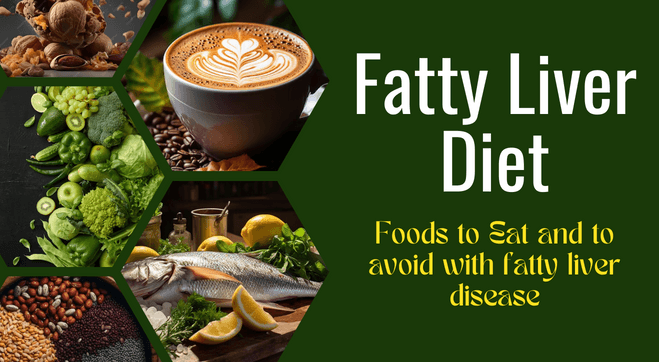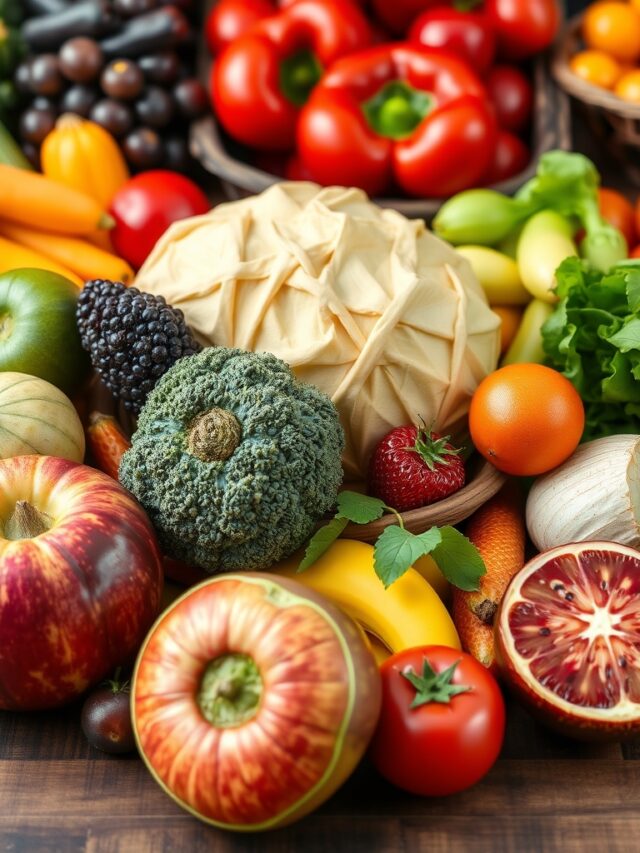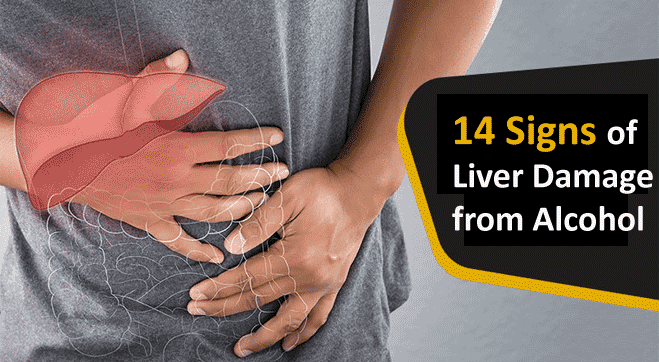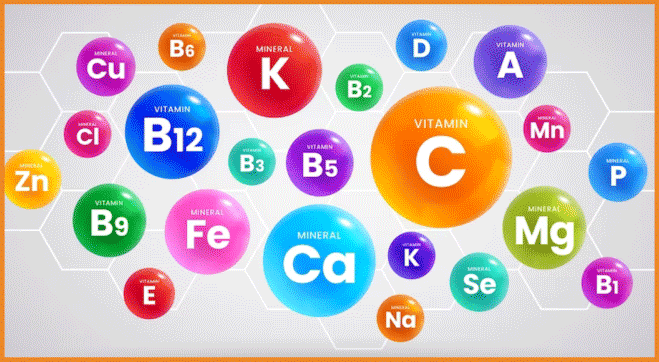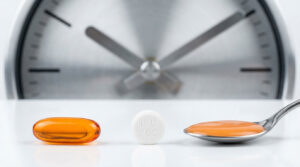Fatty Liver Diet Checker
Enter the name of your food item below to check if it's safe for fatty liver patients.
* None of this is medical advice; users should consult their healthcare provider for personalized recommendations.
Nonalcoholic fatty liver disease (NAFLD) refers to a health condition in which the liver stores more fat than required. If this condition is not treated on time, it could lead to Liver failure. Typically, this condition is most common 1 among people who have other comorbidities, like diabetes (especially type 2 diabetes) or obesity.
For someone who suffers from nonalcoholic fatty liver (NAFLD) and obesity, the first line of therapy is weight loss via a healthy diet and exercise.
Did you know:
- Nonalcoholic fatty liver disease (NAFLD) stands as the prevailing type of chronic liver ailment, impacting approximately 25% of the global population and affecting around 100 million individuals in the United States alone. 2
Types of Fatty Liver Disease:
Understanding the specific type of fatty liver disease is crucial for appropriate management and intervention strategies. There are two main types of fatty liver disease:
Alcoholic Fatty Liver Disease (AFLD):
Alcoholic Fatty Liver Disease (AFLD) develops due to excessive alcohol consumption over a long period, leading to the accumulation of fat in the liver. The main cause of this type of fatty liver disease is Chronic and heavy alcohol usage. It can progress from simple fatty liver to more severe conditions such as alcoholic hepatitis and Liver cirrhosis.
Nonalcoholic Fatty Liver Disease (NAFLD):
Nonalcoholic Fatty Liver Disease (NAFLD) is unrelated to alcohol consumption and is characterized by the accumulation of fat in the liver among individuals who do not consume excessive alcohol. Obesity, insulin resistance, diabetes, and Metabolic Syndrome are common risk factors for NAFLD.
NAFLD is the most common form of chronic liver disease, affecting a large portion of the global population.
Types within NAFLD:
- Nonalcoholic Fatty Liver (NAFL): Involves fat accumulation without inflammation or liver damage.
- Nonalcoholic Steatohepatitis (NASH): Involves inflammation and liver cell damage, which can progress to cirrhosis.
Healthcare providers typically recommend the following dietary changes as part of a fatty liver diet:
- Fruits and vegetables
- Fibre-rich plants, whole grains, and legumes
- A reduction of fatty foods added sugar, and excess salt
- No alcohol consumption
The best foods for fatty liver 3 are those rich in protein, fibre, and unsaturated fats.
What Fatty Liver Diet Plan Can Help With Reducing Fatty Liver Disease?
Wondering what foods are good for fatty liver? Read on.
Greens
Doctors Include a variety of nutrient-dense greens in your fatty liver diet plan. Such as:
- Spinach 4 and Kale: is one of the best foods for fatty liver as it can help lower the risk of fatty liver disease including Nonalcoholic Fatty Liver Disease (NAFLD). This is likely due to the polyphenols and nitrates found in raw spinach.
- Cucumbers: These are known to improve your body’s waste excretion capability and thus might help with fatty liver disease management.
- Broccoli: Broccoli is an excellent source of fiber, vitamin C, and folate. It also has glucosinolate, which may help prevent liver damage.
- Cabbage: Vitamin C, fiber, and a number of antioxidants, including sulforaphane, which may have anti-cancer effects, are all found in cabbage.
- Bok choy: A low-calorie vegetable high in calcium, iron, and vitamins A and C
- Asparagus: Contains folate, and vitamin K, and is a rich source of fiber, which can help regulate liver health.
When incorporating greens into your fatty liver diet plan for liver health, aim for a variety of colors and types to ensure a broad spectrum of nutrients. Consider adding them to salads, smoothies, or as side dishes. Additionally, cooking methods such as steaming or sautéing can help retain the nutritional value of these greens
Potatoes are considered the powerhouse for complex carbohydrates, vitamins, and essential minerals that are known to improve liver health.
Coffee
Many people wonder whether coffee is good for fatty liver. Not only does Coffee 5 help lower the risk of developing fatty liver disease, but it also slows the advancement of liver fibrosis. Coffee consumption releases paraxanthine chemicals into your bloodstream, which is known for preventing scarring of liver in the cases of liver cancer and fatty liver.
Beans and Soy
Beans, as well as soy products 6, may be able to lower the risk of fatty liver disease. So, is soybean good for fatty liver also? Yes, it is.
Soybean is known to improve the liver function index, lipid metabolism, and stress management through its antioxidant properties and might benefit individuals with non-alcoholic fatty liver disease. A study published 7 suggests that a soy diet may benefit in alleviating insulin resistance for nonalcoholic fatty liver diseases
Research indicates 8 that an increased consumption of total legumes, encompassing beans, lentils, and peas, is linked to a reduced risk of nonalcoholic fatty liver disease (NAFLD).
- Lentils: contain choline that prevents fat build-up in the liver and thus are good for individuals struggling with fatty liver symptoms.
- Beans: have a rich content of dietary fiber, contributing to enhanced gut health and the potential management of liver well-being. Furthermore, beans serve as a low-fat protein source, offering a health-conscious option for individuals dealing with fatty liver disease.
- Green peas: Offer protein, fiber, and vitamins A and C, making them a healthy option for people with fatty liver disease.
Nuts
A diet that includes plenty of nuts 9 can help reduce inflammation, oxidative stress, and insulin resistance and decrease the risk of nonalcoholic fatty liver disease. Especially, the antioxidant properties of peanuts make them good for fatty liver. Walnuts, in particular, are high in omega-3 fatty acids and may provide additional benefits for individuals with fatty liver disease. Keep in mind, however, that nuts are high in calories. So, be mindful of your portion when consuming nuts. Eating too many too often could lead to weight gain, which is a hazard factor for fatty liver disease.
Read More: Best Time to Eat Dry Fruits for Maximum Health Benefits
Whole Grains
Whole grains are also believed to help lower the risk of fatty liver and related diseases. That’s why doctors recommend consuming oats for fatty liver 10. Owing to its rich fibre content, oats can keep your liver healthy and potential liver diseases at bay.
Black chana is good for fatty liver as it helps in preventing and managing liver enlargement, making it a beneficial choice for those dealing with fatty liver symptoms. However, rice, owing to its starch content, is considered a risk factor for obesity and non-alcoholic fatty liver disease, alternately you can go for a healthier alternative to white rice, that is brown rice which is rich in fiber and nutrients.
Fish
Is fish good for fatty liver? Fatty fish 11, such as tuna, sardines, and salmon, have high amounts of omega-3 fatty acids. These fatty acids can help in reducing inflammation and fat levels. This, in turn, lowers the risk of fatty liver disease.
Studies 12 have demonstrated that the consumption of fatty fish and its omega-3 fatty acids provides a preventive advantage against non-alcoholic fatty liver disease (NAFLD) and metabolic dysfunction-associated fatty liver disease. Moreover, incorporating two or more servings of fatty fish into the weekly diet has been linked to favorable effects on lipid profiles and may contribute to the reduction of hepatic steatosis, a significant characteristic of fatty liver disease. 13
Garlic
Some studies cite that garlic may have protective effects against ethanol-induced liver diseases and thus garlic can be safe for managing non-alcoholic fatty liver diseases. Garlic for fatty liver is recommended because it could also help reduce fat and body weight and improve overall health. In a 2020 study 14, people suffering from nonalcoholic fatty liver disease consumed 800 mg of garlic every day for 15 weeks. The study reported that they saw a reduction in liver fat and an increase in enzyme levels.
Grapefruit
One of the best fruits for fatty liver, grapefruit contains two key antioxidants — naringenin and naringin — which could help protect the liver by reducing inflammation. A study conducted in 201915 reports that these enzymes could also help with alcohol-induced liver steatosis.
While there is yet to be definitive research evidence on watermelon’s benefits for fatty liver, it possesses antioxidant and anti-inflammatory properties, which can help improve your liver health. Being rich in Vitamins B6, C, and A and resistant starch, bananas are considered good for liver health. The plant enzymes in papayas can help in fatty liver treatment.
Dairy
Wondering if milk is good for fatty liver? A study 16 reported that dairy product consumption could be linked to a lower likelihood of fatty liver disease. The calcium content in milk is known to improve fat metabolism and thus may be good for fatty liver management. But is paneer good for fatty liver? Not always, since paneer may have a high amount of saturated fat.
Read More: Delicious and Healthy: 8 Yummy Paneer Dishes for Weight Loss
Turmeric
Turmeric, which holds the active ingredient curcumin, may help reduce the markers of liver damage. You could supplement your diet with turmeric 17 since this can help decrease enzymes that are abnormally high in people who suffer from fatty liver disease.
Sunflower Seeds
Sunflower seeds are high in antioxidants, especially vitamin E, which helps treat nonalcoholic fatty liver disease. 100 grams of sunflower seeds have around 20 milligrams of vitamin E 18, which is more than what most people need. So, if you’re wondering what foods to eat to cure fatty liver, include sunflower seeds as part of your diet.
What Foods to Avoid If You Have Fatty Liver Disease?
While it’s important to include fruits, whole grains, and vegetables for fatty liver reduction, it’s also vital that you cut out certain foods from your fatty liver diet plan if you want to see a quick improvement. Here’s a look at a few foods to avoid with fatty liver.
Alcohol: Among all the foods bad for the liver, alcohol tops the list. In fact, alcohol can cause fatty liver and a number of other health conditions.
Fried Foods: Fried foods are often high in saturated fat and calories as well. If you are suffering from fatty liver disease and are obese, make sure to avoid consuming fried foods.
White Grains: Wondering if foods like white bread and rice are good for fatty liver? No, they’re not. Keep in mind that anything made with white flour is likely to be highly processed. These foods can, thus, raise your blood sugar and contribute to weight gain.
Added Salt: Consuming too much salt can increase one’s risk of contracting nonalcoholic fatty liver disease, so it is best to limit your intake to under 2,300 milligrams per day 19. If you have high blood pressure, however, make sure to limit your salt intake to under 1,500 milligrams per day.
Added Sugar: Sugary snacks like cookies, candy, soda, and fruit juices with added sugar are some of the key fatty liver foods to avoid. Keep in mind that high blood sugar levels in the body can increase the amount of fat that builds up in the liver.
Red Meat: While meat like chicken is good for fatty liver, red meat should be avoided because it is high in saturated fat. Processed meats, which are high in saturated fat and sodium, should be avoided as well. Lean chicken can help you compensate for your fat intake with its protein contribution.
Fatty Liver Diet Plan for Maximum Benefits: Reverse Fatty Liver Disease
Now that you know what foods to eat for fatty liver and what foods to avoid with fatty liver, let’s take a look at a sample daily Fatty Liver Diet Plan below:
|
Meal |
Sample Menu |
|
Breakfast |
|
|
Lunch |
*Vegetarians can include lentils in place of chicken and fish. |
|
Snack |
|
|
Dinner |
|
|
Dessert |
|
What Medications Should Be Avoided With Fatty Liver Disease?
While medications can help reduce your risk for a number of health ailments, some of them can also increase the risk of liver damage. If you are diagnosed with fatty liver disease, make sure to only consume these medicines after consulting your doctor:
- Acetaminophen
- Antibiotics
- Anti-inflammatory drys
- Anti-seizure medications
- Antiviral medications
- Steroids
Are There Any Other Ways to Treat Fatty Liver?
In addition to changing your diet and opting for a fatty liver diet, there are certain other things you can do to improve the health of your liver, such as:
- Remain active: Exercising every day for at least 30 minutes can not only help you lose weight, but it can also help you manage your liver disease.
- Lower your lipid levels: Make sure to keep an eye on your saturated fat and processed foods intake to manage your triglyceride levels and cholesterol levels. If you are unable to bring down your cholesterol using diet and physical activity alone, enquire with your doctor about possible medication.
- Manage co-morbidities: Illnesses like diabetes can increase the chances and severity of fatty liver disease. If you have diabetes, make sure to maintain a balanced diet and exercise often to help you manage your blood sugar levels. This can, in turn, help with fatty liver as well.
- Undergo liver profile tests: Liver profile tests can help assess the health of the liver. If you are obese or at risk, make sure to book liver profile test so you can start making lifestyle changes at the right time.
While nonalcoholic fatty liver disease can cause severe symptoms, it can often be treated without medication, especially in the starting stages. If you suspect that you may have fatty liver disease, it’s a good idea to book liver function test. If you suspect you might have nonalcoholic fatty liver disease (NAFLD), it is crucial to seek guidance from a healthcare professional. They can facilitate the necessary diagnostic tests online or at home and advise on the most suitable course of action tailored to your individual circumstances.
Also, Routine full-body checkups play a crucial role in detecting fatty liver disease early on, allowing for timely intervention and management. Healthcare professionals can include specific tests during these checkups to assess liver health and identify potential signs of NAFLD before it progresses. To enhance the convenience of health monitoring, individuals now have the option to schedule routine blood sample collection at home. This service eliminates the need for multiple visits to healthcare facilities and ensures a more comfortable and accessible experience for patients. By incorporating the convenience of blood sample collection at home into your routine checkups, you can proactively take charge of your liver health and overall well-being.
Disclaimer
The information listed here is strictly for educational purposes and is not intended to offer personal medical advice. Do consult your physician for any questions you may have regarding a medical condition. It’s not advised to disregard professional medical advice or delay in seeking it because of any information listed here. The Nutrition Source does not recommend or endorse any products.
Sources
Ref Links:
- Nonalcoholic Fatty Liver Disease- NIH
- Nonalcoholic fatty liver disease- Mayo clinic
- Patients With Non-alcoholic Fatty Liver Disease- PubMed
- Nonalcoholic fatty liver disease among adults- NLM
- The effect of coffee consumption on the non-alcoholic fatty liver disease- PubMed
- Food and Nutrition in the Pathogenesis of Liver Damage- NLM
- Soy diet for nonalcoholic fatty liver disease- NLM
- Legume intake and risk of nonalcoholic fatty liver disease- PubMed
- Association between nut consumption and non-alcoholic fatty liver disease- Wiley
- Effects of Omega-3 Fatty Acid in Nonalcoholic Fatty Liver Disease- NLM
- Effects of oily fish and its fatty acid intake on non-alcoholic fatty liver disease- PubMed
- Dietary treatment for nonalcoholic fatty liver disease- NLM
- Hepatic Steatosis in Nonalcoholic Fatty Liver Disease Patients- NLM
- Naringin attenuates alcoholic liver injury- PubMed
- Non-alcoholic fatty liver disease- NLM
- FoodData Central – USDA
- Patients with nonalcoholic fatty liver disease- PubMed
- Sodium in Your Diet- U.S. Food

